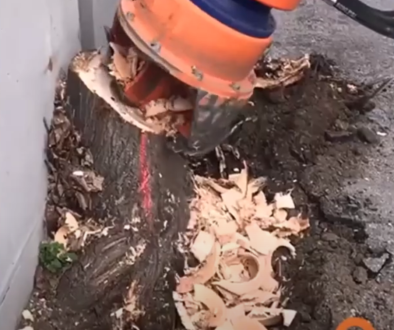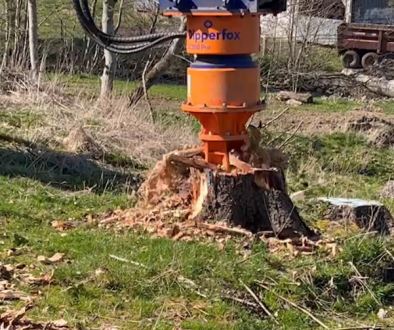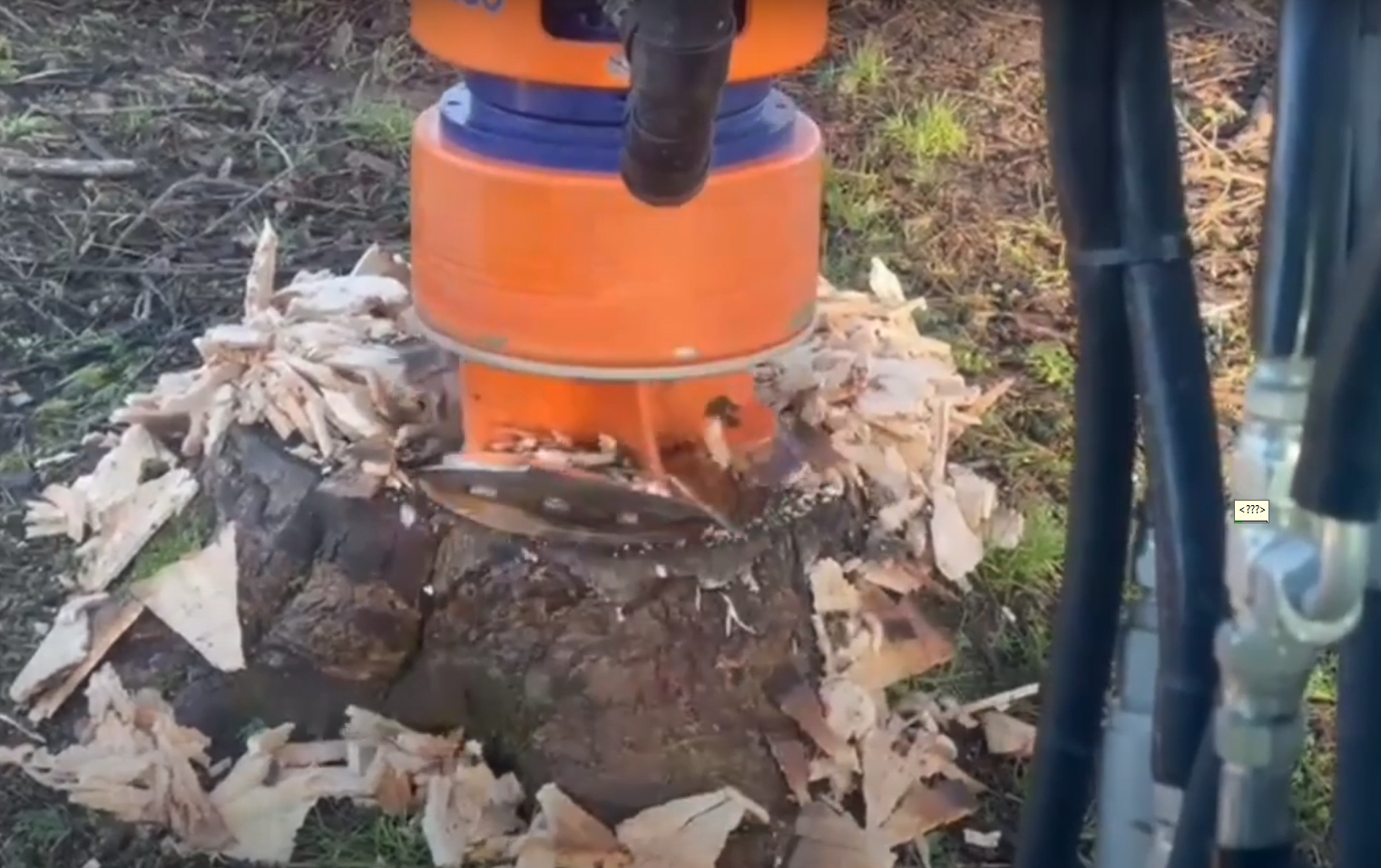Predator Stump Grinder £100 Or £30 Of Fuel Per Day?
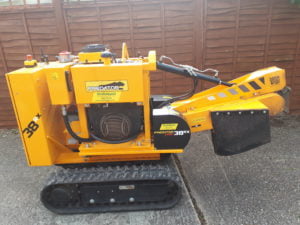
I’ve been using a Predator P28 diesel radio remote tracked stump grinder for the past 30 months, my previous stump grinders were a Carlton 4012 radio remote and a Carlton SP2000 pedestrian stump grinder. The P28 stump grinder comes with a Lombardini 28 hp two-cylinder diesel engine, I have had this particular engine on a few machines that I have owned. It’s quite a basic engine and a fairly old design I believe, however, it does seem to be reasonably economical.
Predator also produces a petrol version of this machine with a 38 hp engine. I’m not particularly keen on having large petrol engines on machines like stump grinders as the engines tend to work reasonably hard and I know from owning a Carlton 27 hp petrol stump grinder how much fuel they can potentially use.
I recently had the opportunity to try a Predator 38 hp petrol stump grinder, I have often tried to find out how much fuel the Predator petrol stump grinder would use a day, but I have to say I never really received a clear answer, which suggests to me that they would consume a lot of fuel and with an engine of this size I wasn’t expecting very good fuel efficiency! The answer normally came out that the petrol version uses more fuel but the work rate is much greater than the diesel version.
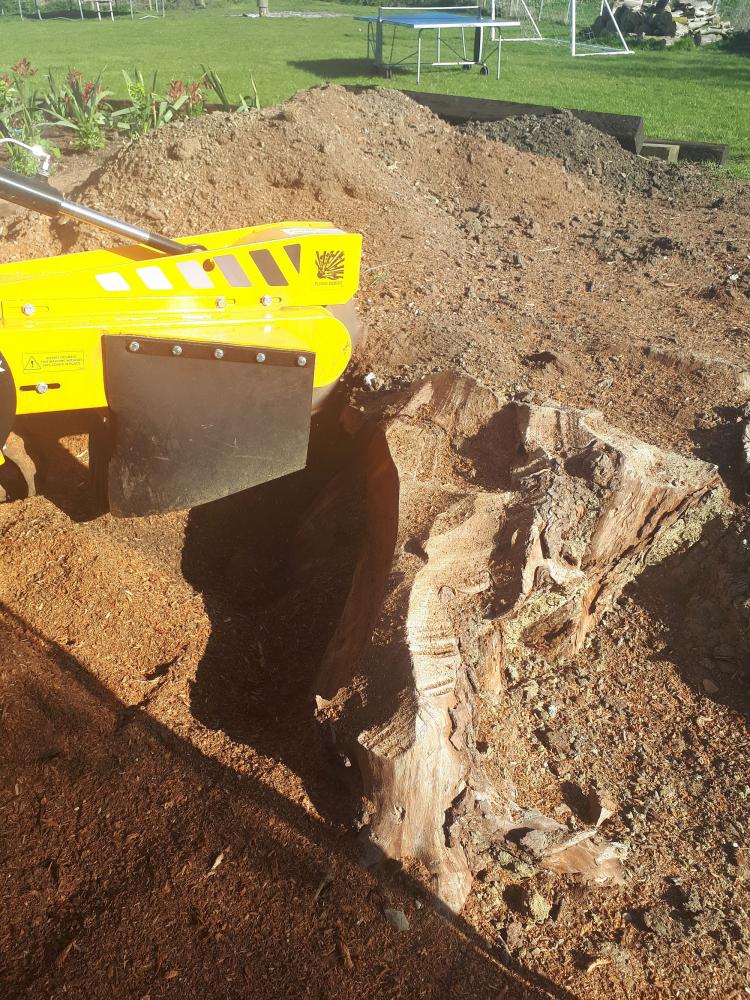
I Tried The Predator 38
I have to say I was looking forward to trying out the predator 38 stump grinder, with approximately 25% more horsepower I was expecting a very good work rate. I think probably one of the greatest features of the petrol version is the quietness of the engine. The version that I tried had the older Kohler engine which you have to choke almost every time to start the engine, even if the engine is warm, this was exactly the same with my Carlton Kohler petrol stump grinder, I’m not quite sure why they require so much choke all the time? Apparently, the latest petrol Predator stump grinders have the 38 hp EFI engine which has no choke which I am sure is much better for starting.
One of things that I always try to take care with, is to engage the cutter wheel on tick over, the diesel engine is able to do this with no problem, however, the petrol engine requires quite a few revs, otherwise, it just seems to stall the engine. I’m not particularly keen on revving an engine up and then letting the clutch snatch in, I believe it could add to problems later on in the machines life.
Performance And Fuel Efficiency
I didn’t notice any difference in power with the petrol stump grinder if I had not known the petrol engine was 38 hp against 28 hp I would have guessed the engines were similar sizes. It would have been interesting seeing the two machines working side-by-side, however, this is just my personal experience. You see a video of my diesel stump grinder working here.
I tried the petrol predator stump grinder on some Poplar tree stumps, these are not the easiest tree stumps to grind. I was quite surprised when the machine stopped after only one hour and twenty minutes, a tankful of diesel normally lasts me three hours continuous grinding before I need to refuel! I actually only used the Predator 38 for one day as I felt it was much cheaper to use my diesel machine.
I estimate to use around 5 L of diesel per hour which works out to around £30 for a day’s work (approximately eight hours continuous use) using red diesel at 75p per litre. If I was using the Predator 38 all day my estimation would be 100 L of diesel which would cost around £100, in other words, four jerry cans per day!
All The Machines Seem To Be Petrol
It appears that most of the smaller stump grinders and chippers are being powered by petrol engines, due to the emission laws. Personally, I think the emission laws are way over the top and although I agree it’s great to have clean engines, we also have to be practical.
With people moving over to petrol vehicles and machines, it does make me wonder if this is a government incentive to collect more tax. There is a huge difference between £30 and £100 worth of fuel per day!
What are your thoughts on the economics of petrol engines?
Do you think the government is just trying to collect more tax from us by burning more petrol?
Please feel free to comment below this blog post.
Thank you for reading.
